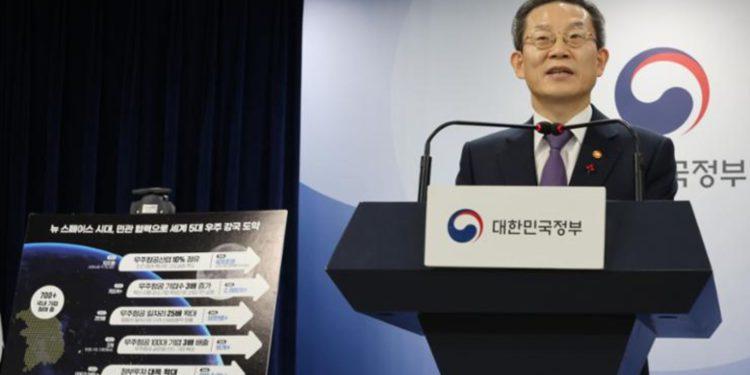The Korean government is advancing the establishment of the Korea Aerospace Administration (KASA) as a critical step following the recent passage of three bills associated with the agency in the National Assembly’s plenary session.
Initiated in line with President Yoon Suk-yeol‘s vision for the future space economy, announced in November 2022, the roadmap led to the formation of a dedicated task force.
The Ministry of Science and ICT, in collaboration with the Ministry of the Interior and Safety, confirmed follow-up measures to launch the Korea AeroSpace Administration officially in May. The development is a part of South Korea’s aspirations to join the League of advanced spacefaring nations.
The Korea Aerospace Administration (KASA) plans to contribute to South Korea’s economic and technological trajectory. The government envisions capturing a 10 percent share, equivalent to 420 trillion won, of the global aerospace market by nurturing over 2,000 innovative aerospace enterprises.
Focused on supporting creative ideas and technology, the initiative aims to create nearly 500,000 jobs and amplify government investments in the aerospace sector.
Aligned with the planned launch of KASA, the Ministry of Science and ICT has set a goal to secure 10 percent of the global spaceflight market by 2045. Science Minister Lee Jong-ho emphasized the agency’s potential to serve as a catalyst for South Korea’s economic growth, pacing toward the country’s lunar and Martian exploration ambitions.
The National Assembly’s recent passage of a special act establishes KASA under the Ministry of Science and ICT with a mandate to shape aerospace policies, boost related industries, and pursue international collaboration. The headquarters for the same will be situated in Sacheon, South Gyeongsang Province.
This initiative is envisaged as a key driver for rejuvenating the aerospace industry, injecting momentum into the Korean economy, and achieving milestones, including landing on the moon by 2032 and exploring Mars by 2045, coinciding with Korea’s centennial liberation anniversary from Japanese colonial rule.
The ambitious goal also includes fostering innovative aerospace companies contributing to the national economy through creative ideas and technological prowess. Immediate post-launch plans involve collaborative projects with leading space research institutes like NASA and JAXA and economic cooperation endeavors with countries such as the United Arab Emirates (UAE), with whom Korea has signed MOUs in the aerospace sector.
Also Read:
- LG Uplus and Space X Forge Partnership to Introduce Starlink in South Korea
- Pangyo Techno Valley is Leaping into the Global Market as an Innovative Business Cluster of Aerospace Startups
- Hanwha Aerospace Signes a Supply Contract Worth KRW 235.6 Billion with Vertical Aerospace, a British UAM Developer
- KAI’s $2bn worth investment is its next big project to enter the global space industry
- South Korea invests in space weather forecast system: The launch expected in 2024







